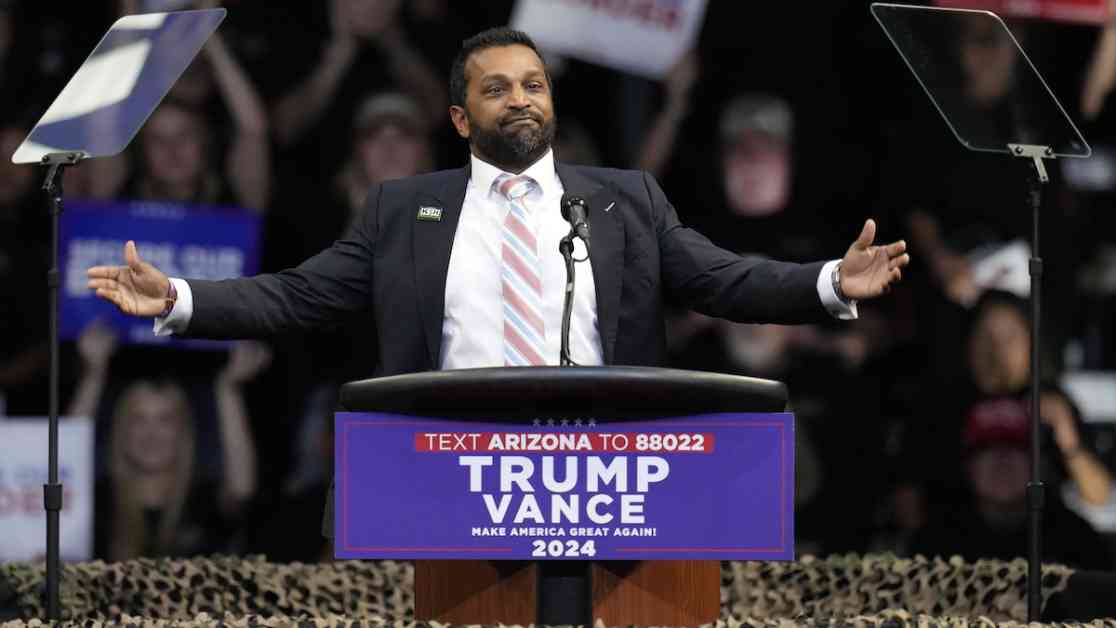Kash Patel: Proposals to Reshape FBI and Vision for the Bureau
Kash Patel, a familiar face in Donald Trump’s circle, has recently gained significant attention after being selected by Trump to lead the FBI. As he prepares for a challenging confirmation process in the Senate, Patel’s views on the FBI’s future have come under scrutiny. With a close alignment to Trump’s skepticism of the FBI and intelligence community, Patel has made bold proposals for reshaping the century-old law enforcement agency.
Shutting down FBI’s Washington HQ
One of Patel’s most provocative ideas involves shutting down the FBI’s iconic J. Edgar Hoover Building in Washington, D.C. He envisions transforming the building into a museum dedicated to the ‘deep state’ and relocating the 7,000 employees to various parts of the country to focus on criminal investigations. While this plan may seem more like a symbolic gesture than a practical solution, it highlights Patel’s desire for significant change within the FBI.
Proposed reforms
In his book “Government Gangsters: The Deep State, the Truth and the Battle for Our Democracy,” Patel suggests moving the FBI headquarters out of Washington to prevent political interference. This proposal coincides with ongoing discussions about relocating the headquarters to Greenbelt, Maryland. However, the fate of the building remains uncertain amidst concerns raised by current FBI Director Christopher Wray.
Crackdown on ‘conspirators’
Patel’s rhetoric about targeting ‘conspirators’ within the government and media has raised concerns about potential crackdowns on whistleblowers and journalists. His support for reversing current Justice Department policies regarding the seizure of journalists’ records reflects a broader strategy to combat leaks and unauthorized disclosures of sensitive information.
Surveillance reform
A vocal critic of the FBI’s surveillance practices, Patel advocates for significant reforms to enhance oversight and accountability. His focus on improving the FBI’s compliance with surveillance laws aligns him with civil libertarians and Trump supporters alike. However, his views diverge from FBI leadership, which emphasizes the importance of surveillance capabilities in combating national security threats.
Reducing the size of the intelligence community
Patel’s call for downsizing the federal government’s intelligence apparatus, including the CIA and NSA, reflects a broader push to streamline national security operations. While his proposal to separate the FBI’s intelligence functions from its core crime-fighting activities may face logistical challenges, it underscores his vision for a more efficient and effective law enforcement agency.
In conclusion, Patel’s ambitious agenda for reshaping the FBI raises critical questions about the future of the bureau and its role in safeguarding national security. As he navigates the confirmation process and confronts skepticism from various quarters, Patel’s proposals offer a unique perspective on the challenges facing the FBI in the 21st century.














